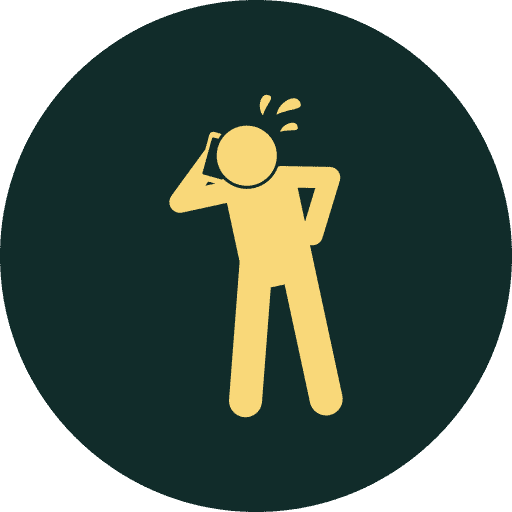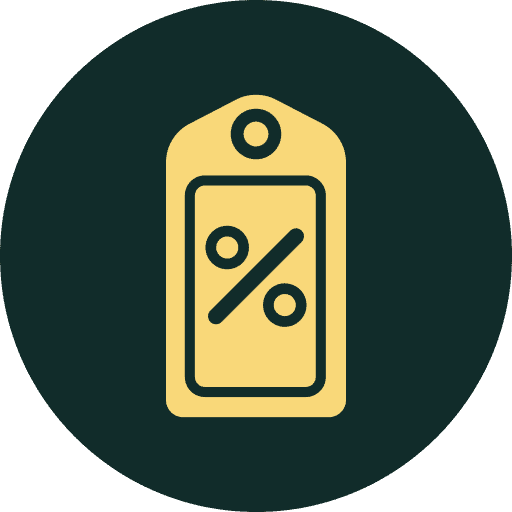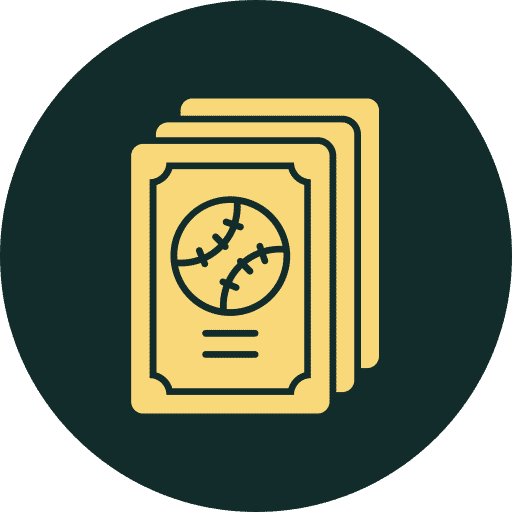Shopping addiction is a disorder characterized by both impulsive and compulsive shopping. The condition goes by different names, including compulsive shopping disorder, pathological buying, and oniomania, among others.
Most of the time, people suffering from compulsive shopping disorder feel the urge to shop to mask feelings of anxiety or depression. Otherwise, they might engage in compulsive shopping because they cannot control their impulses appropriately.
Splurging now and then is not harmful for most people. It is not a crime for one to treat themselves every once in a while. However, if the need to splurge is uncontrollable and beyond financial means, it might indicate a deeper problem.
Compulsive buying disorder can have adverse effects on one’s life. Individuals suffering from this disorder might find themselves in crippling debt. In addition, the behavior might harm their relationship with loved ones.
There are several categories of shopping addiction, which include:

Emotional distress shoppers mostly shop to appease their emotions. These emotions might be feelings of anxiety or depression. This nature of shopping creates a vicious cycle, as the shoppers tend to feel better during and immediately after shopping. But after a while, the anxiety and depression creep in, and they need to shop again.

Trophy shoppers are never satisfied with what they have. They are always looking for the perfect item. Suppose they are lovers of interior décor; they might never find the perfect chandelier or flower vase. They are perpetual shoppers looking for that item to solve all their problems

Flashy shoppers are visible everywhere. They are people who only shop for designers, and every time they have something new, they ensure everyone knows. These types of shoppers never get satisfied with what they have. Instead, they want everyone to know they have the latest luxury item. Social media does not help either.

Bargain shoppers love discounts. When they are online or walk into a physical store, they cannot help themselves when they see deals being offered. Even if they do not need the item or have not budgeted for it, they have the compulsive urge to get it.

Bulimic shoppers are shoppers who are never satisfied with what they buy. When in the store, they are convinced they need the item. But upon getting home, they realize they are no longer obsessed with the product. So they return it and again feel the urge to have the item or something else.

Collector shoppers are sentimental and might show symptoms of obsessive-compulsive disorder. They shop for items to complete given sets and setups. For instance, if shopping for plates, they might feel the need to buy extra plates to have complete sets of given color or design. That might replicate all utensils in the kitchen.
While shopping is not a problem, it can be catastrophic when it starts running off the rails. The following are some of the signs that can be indicative of a compulsive buying disorder:
These are just symptoms. People showing these behavioral patterns should visit a professional. Professionals can help diagnose if they are genuinely suffering from oniomania. Then, they might learn that they have a deeper problem, and the professional will help them appropriately.
Compulsive shopping disorder is a treatable condition. Working with a behavioral health professional can be incredibly helpful for treatment. Trained mental and behavioral professionals help teach people healthy coping skills and help manage symptoms.
There are several therapies that can help with addressing oniomania. If the problem is diagnosed as a behavioral issue, cognitive behavioral therapy can help. This approach helps people learn their triggers and manage their impulses better.
Compulsive buying disorder is treated like other types of behavioral addiction, like substance abuse, gambling addiction, and sex addiction. Addiction treatment can vary depending on an individual’s case.
Here are some steps that can help manage shopping addiction:
If the healthcare professional finds that there is another underlying condition, additional treatment can be used to address the core issue.
Deanna Crosby is a Licensed Marriage and Family Therapist (LMFT) with over 20 years of experience working with clients in recovery. Her expertise has catapulted her into the spotlight. Featured on several episodes of the Dr. Phil Show as a behavioral health expert, DeAnna is a routine contributor for NBC News, The Huffington Post, Elle Magazine, MSN, Fox News, Yahoo, Glamour, Today, and several other prominent media outlets.
After receiving her bachelor’s degree from the University of California in Irvine, Crosby did postgraduate work at Centaur University where she graduated at the top of her class with a CAADAC certification in Centaur’s chemical dependency program. Following her time at Centaur, Crosby received her Master of Counseling Psychology degree from Pacifica Graduate Institute, where she also attained a Doctoral Degree in Depth Psychology.
Accredited by:
"*" indicates required fields
New Method Wellness
We firmly believe that the internet should be available and accessible to anyone, and are committed to providing a website that is accessible to the widest possible audience, regardless of circumstance and ability.
To fulfill this, we aim to adhere as strictly as possible to the World Wide Web Consortium’s (W3C) Web Content Accessibility Guidelines 2.1 (WCAG 2.1) at the AA level. These guidelines explain how to make web content accessible to people with a wide array of disabilities. Complying with those guidelines helps us ensure that the website is accessible to all people: blind people, people with motor impairments, visual impairment, cognitive disabilities, and more.
This website utilizes various technologies that are meant to make it as accessible as possible at all times. We utilize an accessibility interface that allows persons with specific disabilities to adjust the website’s UI (user interface) and design it to their personal needs.
Additionally, the website utilizes an AI-based application that runs in the background and optimizes its accessibility level constantly. This application remediates the website’s HTML, adapts Its functionality and behavior for screen-readers used by the blind users, and for keyboard functions used by individuals with motor impairments.
If you’ve found a malfunction or have ideas for improvement, we’ll be happy to hear from you. You can reach out to the website’s operators by using the following email juanita@newmethodwellness.com
Our website implements the ARIA attributes (Accessible Rich Internet Applications) technique, alongside various different behavioral changes, to ensure blind users visiting with screen-readers are able to read, comprehend, and enjoy the website’s functions. As soon as a user with a screen-reader enters your site, they immediately receive a prompt to enter the Screen-Reader Profile so they can browse and operate your site effectively. Here’s how our website covers some of the most important screen-reader requirements, alongside console screenshots of code examples:
Screen-reader optimization: we run a background process that learns the website’s components from top to bottom, to ensure ongoing compliance even when updating the website. In this process, we provide screen-readers with meaningful data using the ARIA set of attributes. For example, we provide accurate form labels; descriptions for actionable icons (social media icons, search icons, cart icons, etc.); validation guidance for form inputs; element roles such as buttons, menus, modal dialogues (popups), and others. Additionally, the background process scans all of the website’s images and provides an accurate and meaningful image-object-recognition-based description as an ALT (alternate text) tag for images that are not described. It will also extract texts that are embedded within the image, using an OCR (optical character recognition) technology. To turn on screen-reader adjustments at any time, users need only to press the Alt+1 keyboard combination. Screen-reader users also get automatic announcements to turn the Screen-reader mode on as soon as they enter the website.
These adjustments are compatible with all popular screen readers, including JAWS and NVDA.
Keyboard navigation optimization: The background process also adjusts the website’s HTML, and adds various behaviors using JavaScript code to make the website operable by the keyboard. This includes the ability to navigate the website using the Tab and Shift+Tab keys, operate dropdowns with the arrow keys, close them with Esc, trigger buttons and links using the Enter key, navigate between radio and checkbox elements using the arrow keys, and fill them in with the Spacebar or Enter key.Additionally, keyboard users will find quick-navigation and content-skip menus, available at any time by clicking Alt+1, or as the first elements of the site while navigating with the keyboard. The background process also handles triggered popups by moving the keyboard focus towards them as soon as they appear, and not allow the focus drift outside of it.
Users can also use shortcuts such as “M” (menus), “H” (headings), “F” (forms), “B” (buttons), and “G” (graphics) to jump to specific elements.
We aim to support the widest array of browsers and assistive technologies as possible, so our users can choose the best fitting tools for them, with as few limitations as possible. Therefore, we have worked very hard to be able to support all major systems that comprise over 95% of the user market share including Google Chrome, Mozilla Firefox, Apple Safari, Opera and Microsoft Edge, JAWS and NVDA (screen readers), both for Windows and for MAC users.
Despite our very best efforts to allow anybody to adjust the website to their needs, there may still be pages or sections that are not fully accessible, are in the process of becoming accessible, or are lacking an adequate technological solution to make them accessible. Still, we are continually improving our accessibility, adding, updating and improving its options and features, and developing and adopting new technologies. All this is meant to reach the optimal level of accessibility, following technological advancements. For any assistance, please reach out to juanita@newmethodwellness.com
"*" indicates required fields
"*" indicates required fields